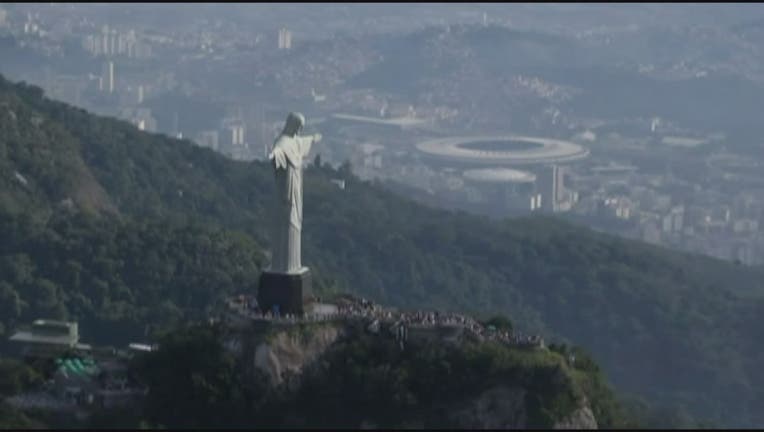Rio organizers get grilled by IOC with Olympic games set to open

RIO DE JANEIRO - (AP) -- With the Rio de Janeiro Olympics set to open, worried IOC members grilled top organizing officials about traffic jams, water pollution, security, and the absence of signage that gives the games its own distinct look.
International Olympic President Thomas Bach also turned up the pressure Wednesday by talking straight to organizing committee president Carlos Nuzman and CEO Sidney Levy, who tried to soothe almost 100 IOC members.
"It's delivery time," Bach said. "Here we go now. It really starts. We are very confident we will celebrate great games here in Rio and the world will be surprised to see what will happen here."
Bach also cautioned: "All praise is premature now. ... It's too early to celebrate."
Prince Albert of Monaco asked about Rio's severe water pollution, which soils Olympic venues for sailing, rowing, canoeing, triathlon and open-water swimming. Rio treats about half of its raw sewage, dumping the rest into the waters surrounding the area of 12 million people.
"The media has said a lot about the preparations of these games, and they say a lot about the levels of pollution," Albert said. "How worried should we be?"
Rio spokesman Mario Andrada repeated assurances that bacterial pollution levels fall within World Health Organization guidelines. However, organizers have been criticized for the astronomical viral levels in the waters, and for not testing for this kind of pollution.
Then there's surface debris.
"We do have a few problems with the floating garbage," Andrada acknowledged, explaining plans to use a dozen garbage collection boats in the sailing venue. Rio is also using barricades to block the flow of garbage from streams, and helicopters to spot garbage flows.
Swiss IOC member Denis Oswald asked about traffic jams in the run-up to the games, which open Friday.
"Those who've had the opportunity to get to some of the venues have had lots of difficulties," Oswald said.
Rio official Leo Gryner said there were "some constraints" getting the Olympic lane system to work. The lanes are to help get athletes and officials around town quickly. He said city officials were making changes.
"They are making the flow quicker and making sure all the athletes get to training and competition on time," Gyrner said.
Rio commercial officer Renato Ciuchini was asked why there was so little signage - signs that give the games it distinct look and help direct fans to venues. It was suggested the number installed only reached 15 percent.
"We are very confident the supplier will now install everything, but I believe a few will be installed a bit late," Ciuchini said. IOC officials said Christophe Dubi, the Olympic Games executive director, was holding an emergency meeting with the supplier.
IOC member Alex Gilady asked Levy about his three largest worries. Levy listed transportation, security - despite a force of 85,000 police and soldiers - and finances.
He said transportation was going well between the two largest venue clusters - the Olympic Park and the northern cluster of Deodoro. He said that comprised 75 percent of the trips. The problem area was in urban Rio around Copacabana Beach and the Rodrigo de Freitas lagoon where rowing takes place.
"It's a real challenge," Levy said.
He also acknowledged the operating budget is under stress. That is a budget of 7.4 billion reals ($2.3 billion) for operating the games themselves, but not for building venues and roads.
Rio organizers have been getting cash advances from the IOC but still maintain their budget is balanced. Several reports say the IOC recently turned down a $70 million loan to Rio.
Away from the venues, Brazil is in its deepest recession since the 1930s. Separately, President Dilma Rousseff has been replaced by interim president Michel Temer as she awaits an impeachment trial in the federal senate.
---
Stephen Wade on Twitter: http://twitter.com/StephenWadeAP .His work can be found at http://bigstory.ap.org/content/stephen-wade
© 2016 The Associated Press. All rights reserved. This material may not be published, broadcast, rewritten or redistributed.

